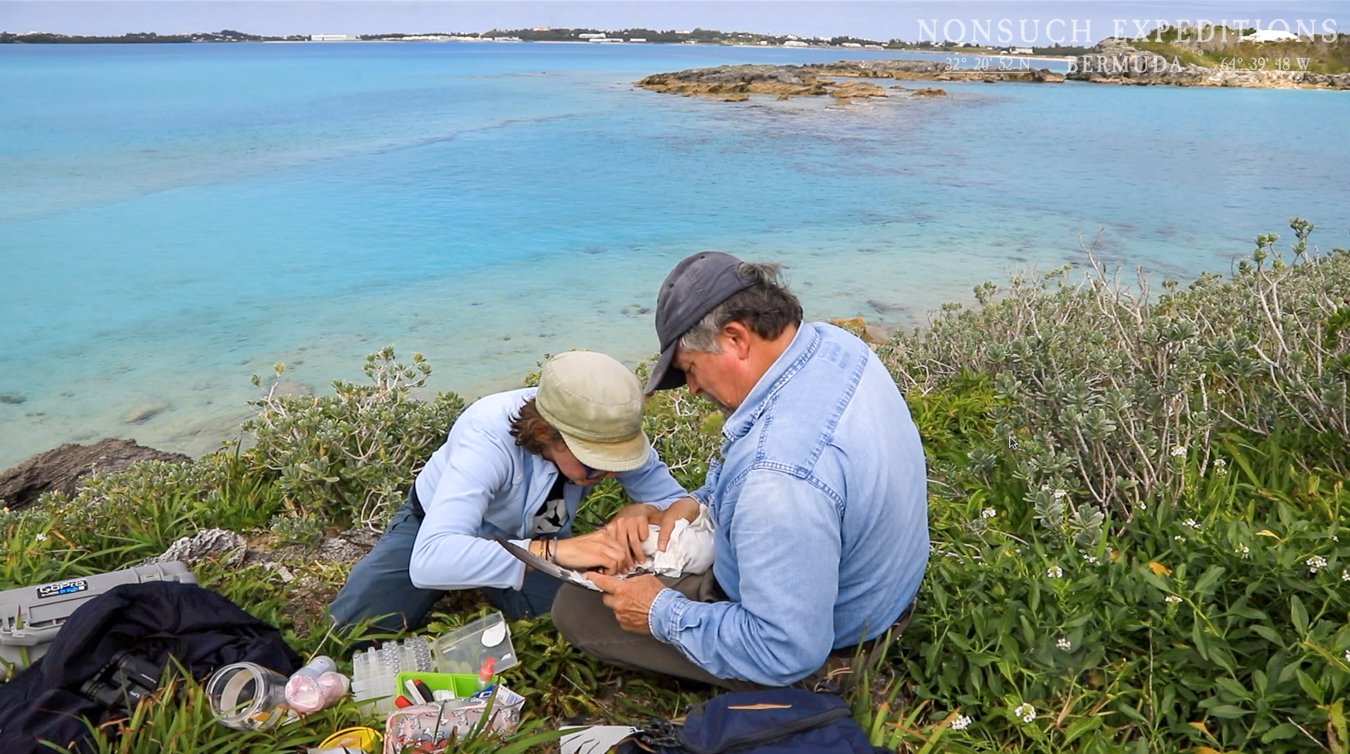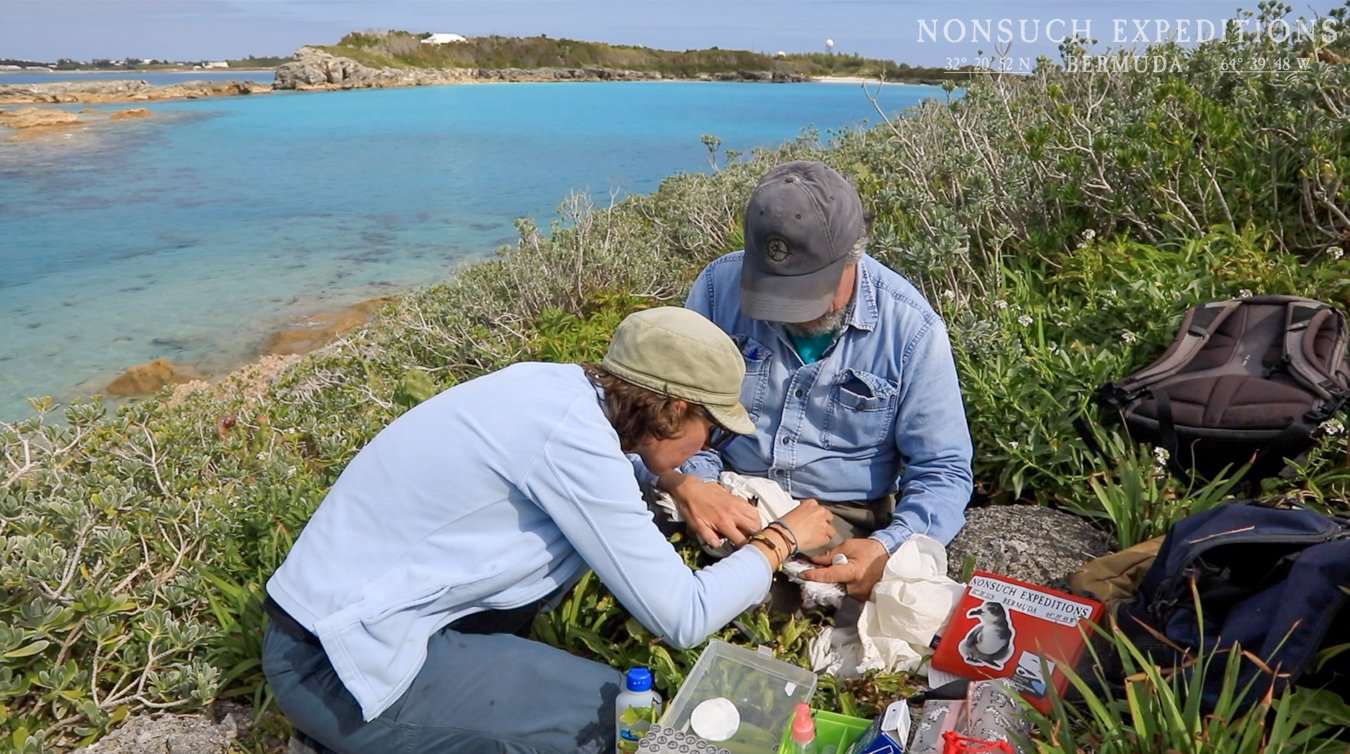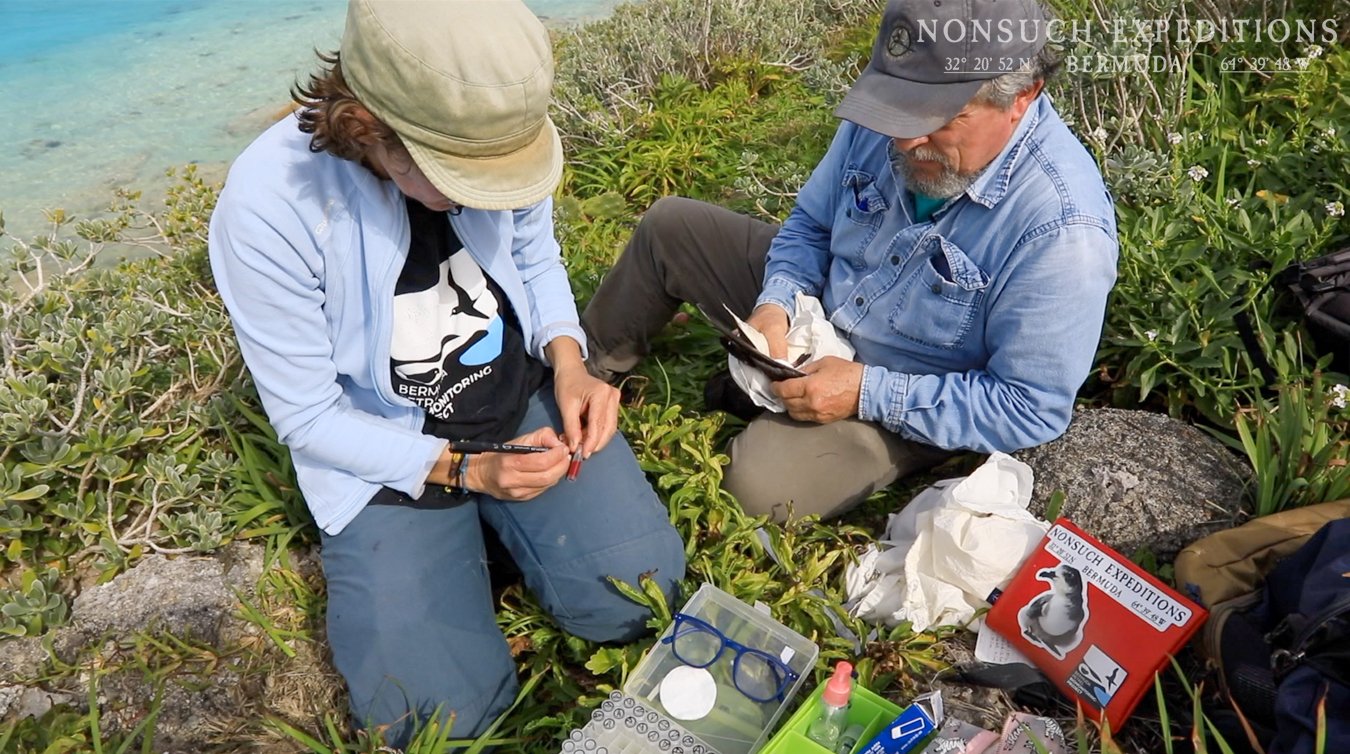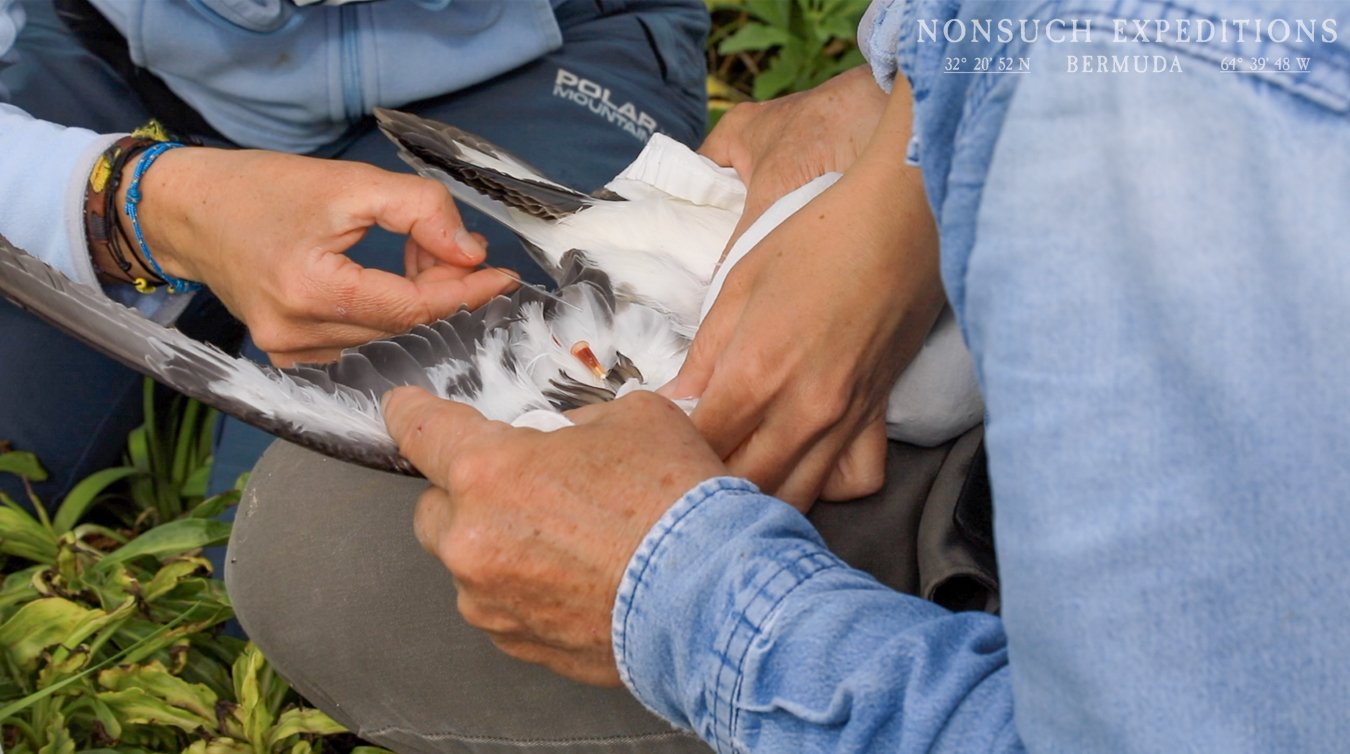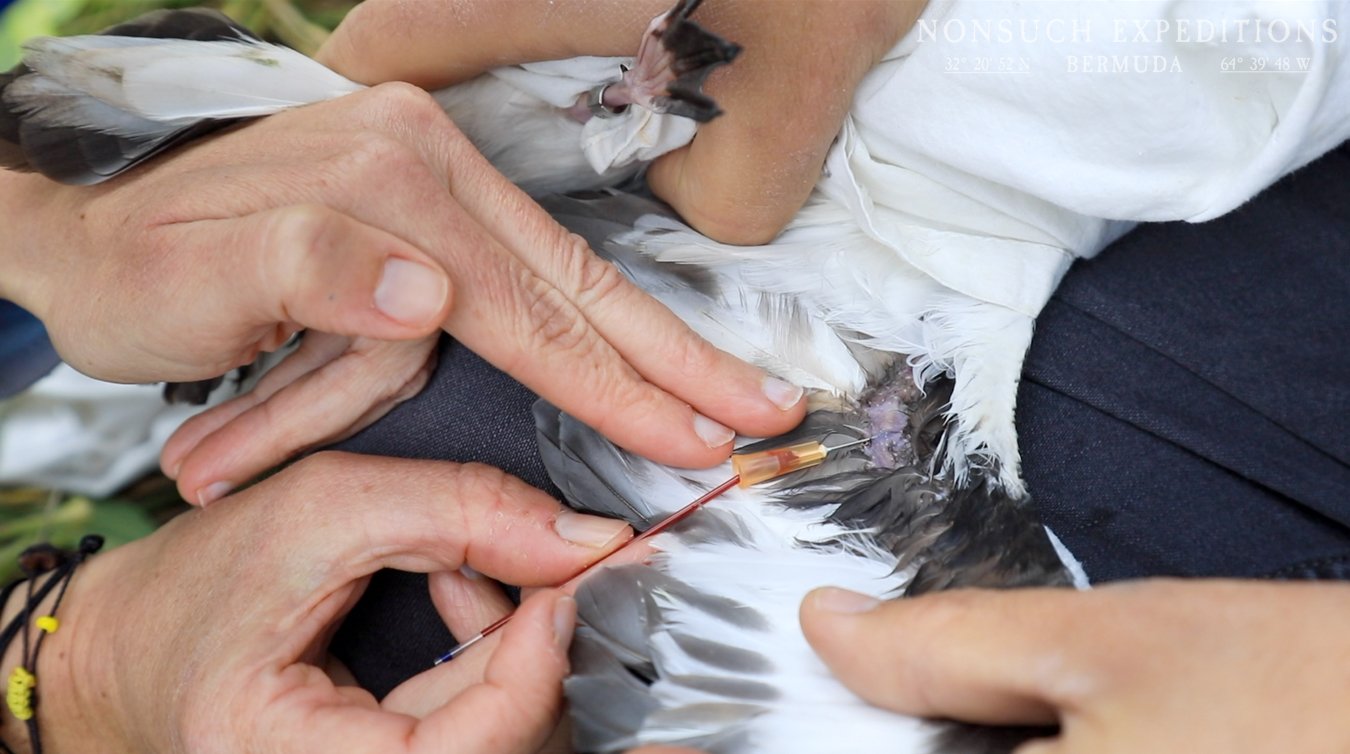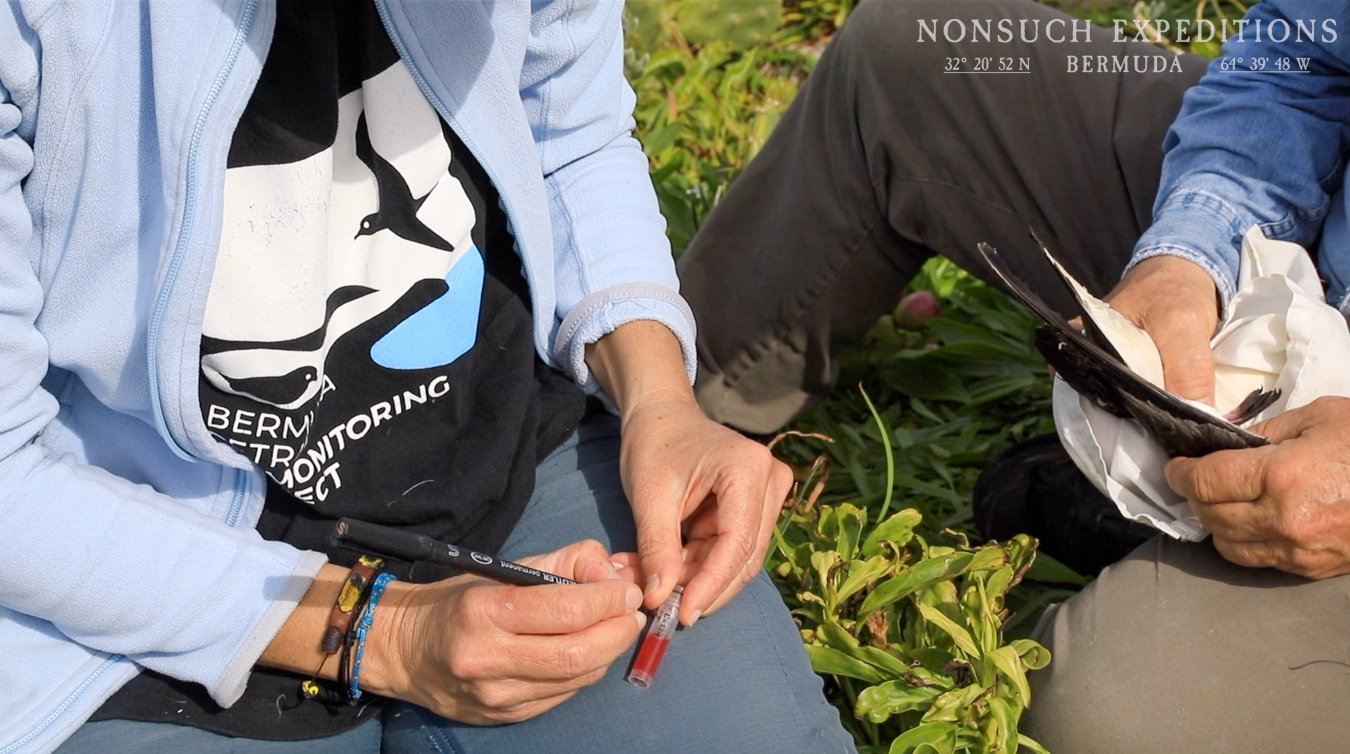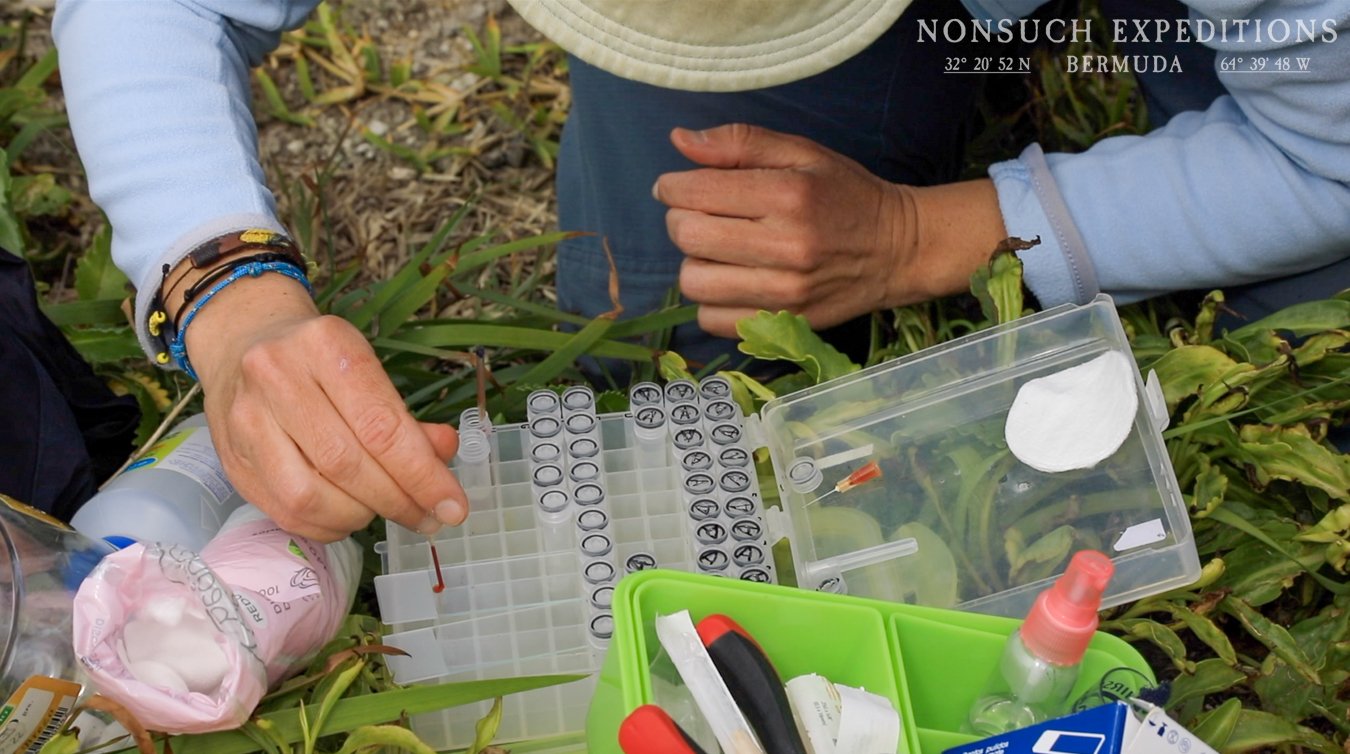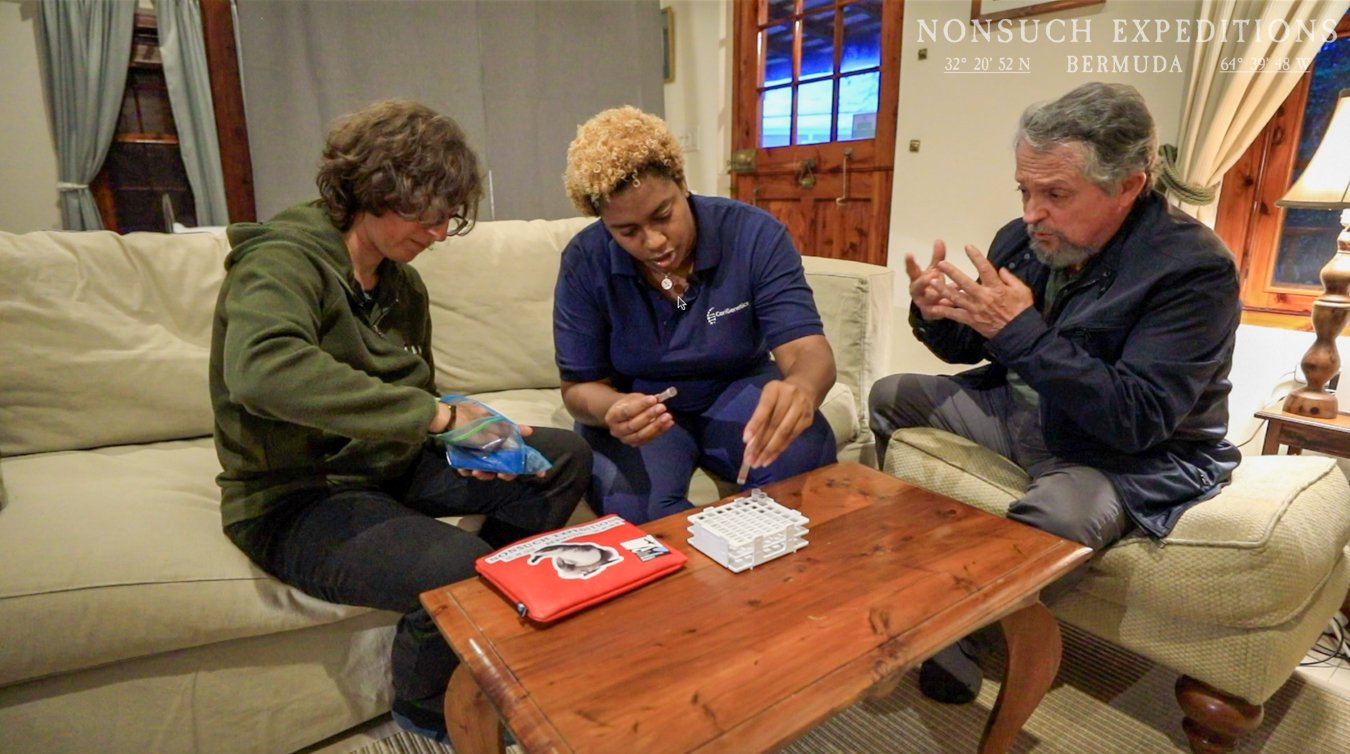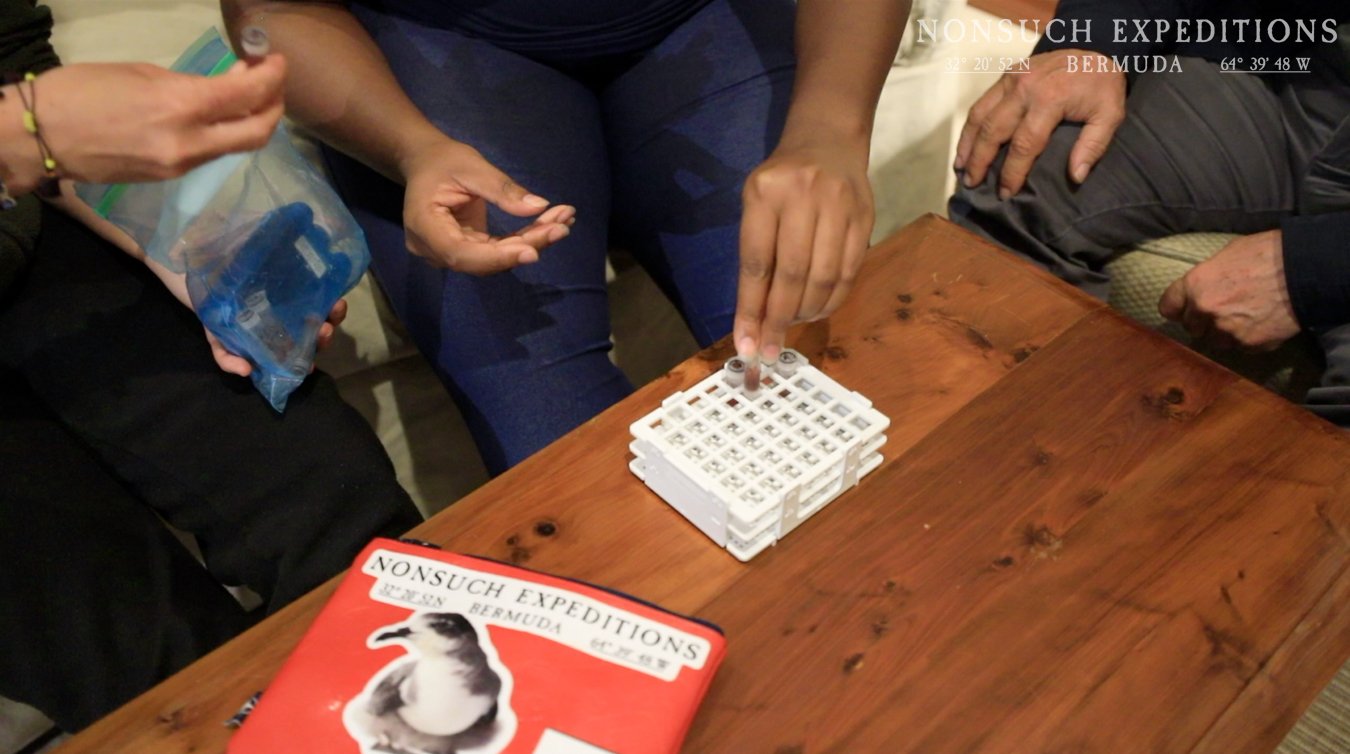In collaboration with Nonsuch Expeditions, the Department of Environment and Natural Resources (DENR) is delighted to announce the successful conclusion of the 2024 nesting season for the Bermuda Petrel, also known as the Cahow.
“Although we fell just short of the 2021 record of 78 fledged chicks, with 76 this year throughout the entire colony, we have set a new record on Nonsuch Island," said Jeremy Madeiros, DENR terrestrial conservation officer. "The translocation colonies have shown over a 25% increase, with 25 fledged chicks compared to last year's 19, making Nonsuch Island the most productive sub-colony for the species."
This success is particularly notable given that the first chick for the new Nonsuch Island population was produced in 2009, thanks to the Translocation Project. Previously, no Cahows had nested on Nonsuch Island or any of the other larger Bermuda islands since the 1620s due to the introduction of mammal predators such as rats, cats, dogs, and pigs and overhunting by early settlers.
This remarkable achievement highlights the dedicated conservation work over the past decades and fully confirms the success of the Translocation Project work that was carried out between 2004 and 2017 by Jeremy Madeiros. The original Cahow Recovery Project, one of the longest-running recovery programs for a critically endangered species, was initiated by Dr. David Wingate from 1962 to 2000 and is currently led by Mr. Madeiros from 2000 to 2024. It is also a signature part, and a keystone species in the overarching rewilding of Nonsuch Island during the same period.
At a recent talk at the Bermuda Underwater Exploration Institute (BUEI), Mr. Madeiros and Nonsuch Expeditions Founder J-P Rouja presented the latest statistics on the Cahow Recovery work. They also shared findings from collaborations with researchers from Canada, the U.S., and Italy. While most threats to the Cahow at its breeding grounds in Castle Harbour have been controlled, issues such as erosion, flooding from sea-level rise, and stronger hurricanes pose new challenges. However, Nonsuch Island remains less affected due to its larger size and higher elevation.
Persistent Organic Pesticides (POPs) detected in adult Cahows continue to be a concern, as they negatively affect breeding success. These compounds, including DDT, DDE, and Hexachlorobenzene, remain in the marine food web despite being banned over 20 years ago.
GPS tracking tags have also provided valuable data on the Cahow's range and feeding areas, revealing that they travel over 3,000 miles from Bermuda to waters near Ireland, northwest Spain, and as far north as Newfoundland and Iceland.
Deputy Premier and Minister The Hon. Walter Roban said: "The record-breaking numbers this year are incredibly encouraging. It's clear that our ongoing collaborations with Nonsuch Expeditions and local and international partners are making a real difference in the recovery of this iconic species."
Jean-Pierre Rouja, founder of Nonsuch Expeditions and CahowCam developer, added: "Our CahowCams and LiveStreams, launched over 13 years ago, continue to aid in the protection, recovery, and management of the species. With technical assistance from the Nature Conservancy, we've also installed a solar-powered, wirelessly meshed network of camera traps, with a custom AI trained to detect early signs of rodents and other threats."
Nonsuch Expeditions' ongoing work with the DENR has been recognized as one of the top conservation efforts globally with a special Chairman's award from the Mohamed bin Zayed Conservation Fund (MBZCF).
"The MBZCF award is a game-changer for our projects," said Rouja. "It brings international recognition and much-needed support, helping to enhance our monitoring and predator control capabilities and build new concrete burrows for the Bermuda Petrel."
In partnership with local NGO BioQuest, and following the completion of the Bermuda Petrel reference genome last year, to further aid recovery management of the species, the MBZCF grant will also support the first phase of a genomic population study.
Nonsuch Expeditions and DENR look forward to progressing the conservation of Bermuda's national bird and thank all partners, sponsors, and volunteers, especially those from Cornell Lab of Ornithology and the crowdsourced volunteers monitoring the CahowCam live streams, for their support.













